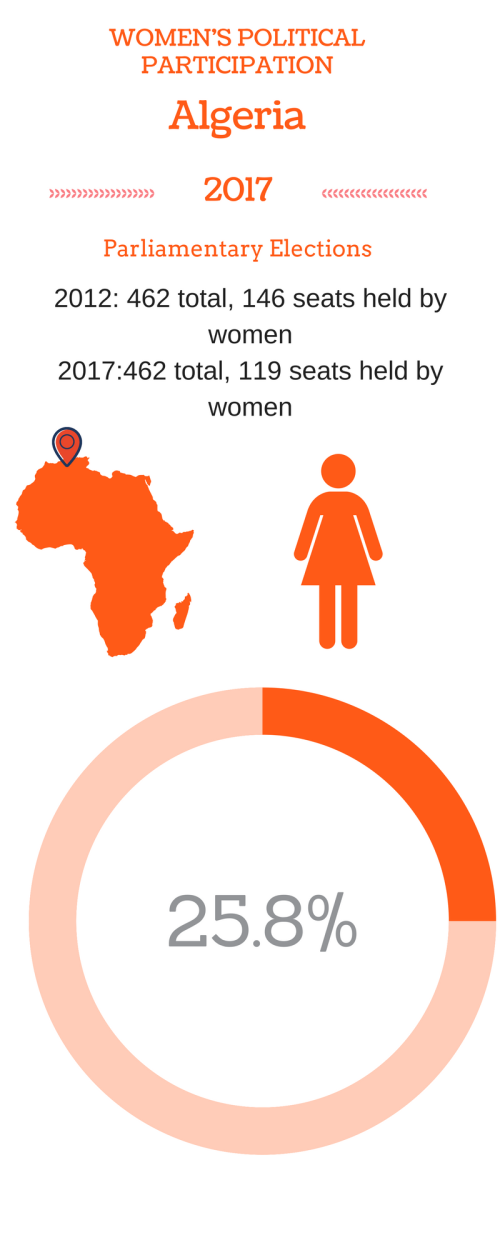The parliamentary elections were held in Algeria on 4 May 2017.
Bouteflika's National Liberation Front (FLN) won 164 of the national assembly's 462 seats in a poll overshadowed by low turnout, public disillusionment over a tepid economy and allegations of political corruption.
The Parliament of Algeria comprises of two chambers: the Council of the Nation which is also known as Upper Chamber and the People's National Assembly well reckoned as the Lower Chamber. The People's National Assembly which is the lower house of the Parliament in Algeria is actually constituted of 380 members who are directly elected from different assigned constituencies of the country. It's important to note that Algeria has a multi-party functioning system and the constitution of the country has made provisions for it and no political party can be formed on the basis of religion, sex or corporate beliefs.
Women's political participation is considered as the highest in the Arab World, with women holding 146 seats in 2012 and 119 seats in 2017.
Women's Political Participation
In 2012, a law passed which introduced quotas for women in certain political bodies. The law requires political parties to devote 30% of their electoral lists to women and it reserves 30% of the seats in Parliament. As a result, from 2007 to 2012 the place of women in the National Assembly jumped from 7.75% to 30%. During the 2017 elections and despite the fact that Islamists tried to boycott women's participation by erasing their faces from election posters, the percentage remained high- probably the highest in the Arab World.
Although Algerian women played a key role in the war for independence from France, the legal status of women in Algeria presents a dichotomy. Thus, the constitutional principle of the equality of the sexes is scrupulously respected when it comes to civil and political rights. With respect to their personal status, they are governed by the Family Code, which is based in part on the Shariah. Algeria ratified the Convention on the Elimination of All Forms of Discrimination against Women (CEDAW) in 1996, but with it has not ratified the Optional Protocol on violence against women.
Conclusion
The future of women's participation in the political sphere in Algeria looks bright. However, there is still a lot to be done in order to achieve gender equality. As a first step, the government, in conjunction with related civil society actors, should launch an awareness campaign regarding the rights granted to women under the 2005 amendments to the family code.

